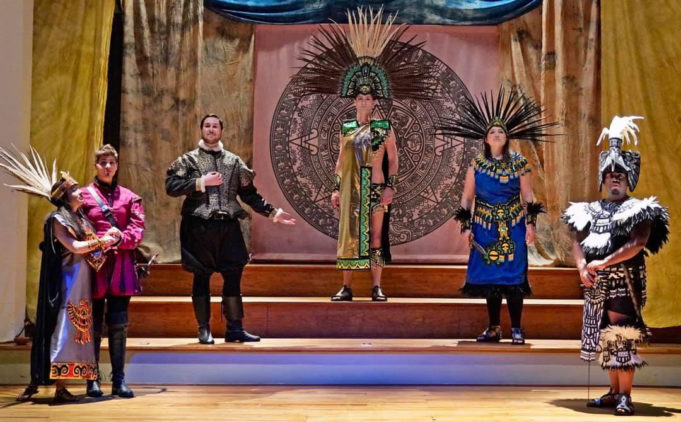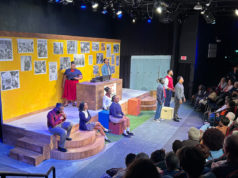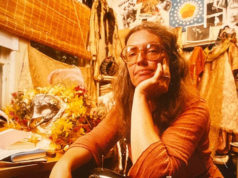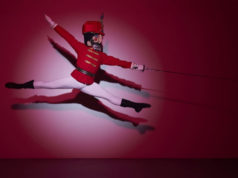Nicholas Garza described his choral group’s opening concert a couple of months ago as “uplifting and emotional,” and it sure does sound that way. In the sanctuary at St. Stephen Presbyterian Church on the South Side, the nearly 150 concertgoers were asked to sit close to Ensemble Iona’s eight singers standing in a semicircle as dozen of candles bathed everyone in somber, golden hues. During the group’s performance of Eric Whitacre’s “Goodnight Moon,” Garza said you could hear concertgoers sobbing.
“That’s what is beautiful about choral music,” said Garza, who performs as part of the company while also serving as its artistic director. “You could be at a difficult time in your life and heal in some way.”
The idea behind Ensemble Iona is to program high-quality vocal music in an intimate setting. Founded over the summer with seed money from a church member, the ensemble is part of St. Stephen’s concert series, but Iona Executive Director Jordan Smith plans to form a separate nonprofit to support the growth of Ensemble Iona outside of the church.
Many choral compositions sung by choirs today were originally written for smaller groups of singers, said Garza, who is also executive director of American Baroque Opera, a Dallas nonprofit that presents Baroque-era operas.
“Small ensemble singing lends itself to more intimate vocal settings,” Garza continued. “Most of the time, it is not accompanied. If it is accompanied, the piano parts are more collaborative and complex. The members have to pull their weight. Most of us have solo careers performing around the United States. This is bringing us together.”
Ensemble Iona’s roster boasts several lauded vocalists, including Grammy Award-winning tenor Michael Jones and Melanie Russell, who toured with Philip Glass as part of the cast of Einstein on the Beach and performed as soloist for several major U.S. orchestras. Working with a conductorless octet requires every musician to fully know their parts and how those sections fit within the broader work.
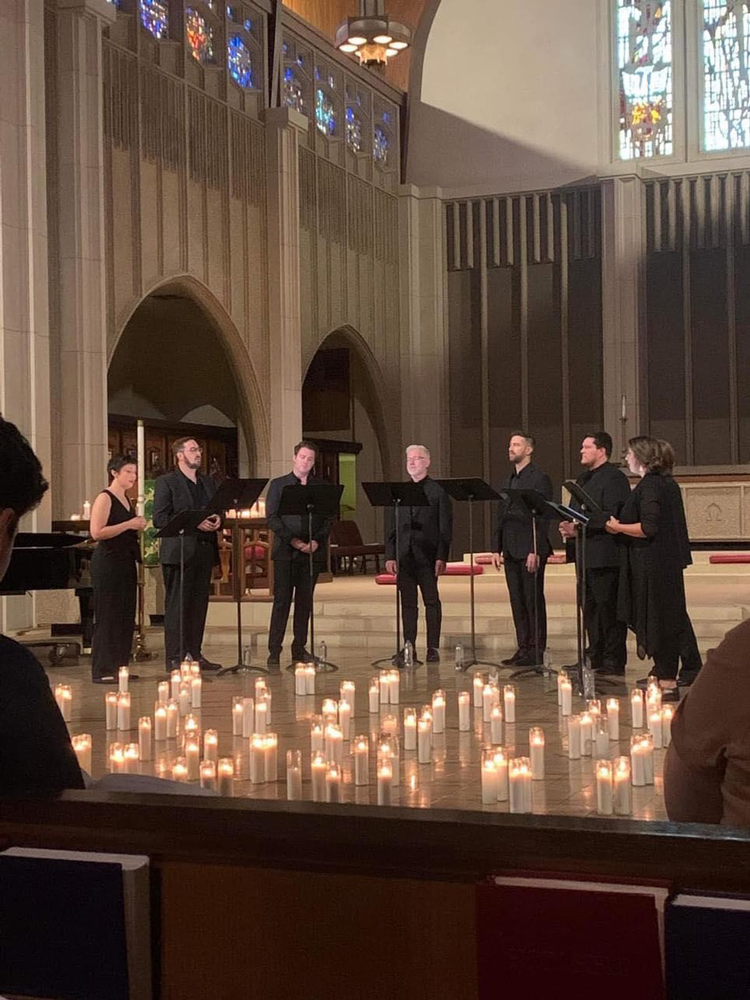
Courtesy Ensemble Iona
“There is an art to doing small ensembles,” Garza said. “You have to bring individuality but in the collaborative sense by really listening. I didn’t want there to be too many cooks interjecting. At the end of the day, I will take charge of certain things.”
The new ensemble, whose next performance is Saturday, Feb. 24, at St. Stephen, has national ambitions with Fort Worth as home base. Mid-sized vocal ensembles already have a large following in Europe and the States, Garza said, noting that Ensemble Iona has the same number of performers as United Kingdom-based Voces 8.
“We are kind of like them but just spicier because we are from Texas,” Garza said. “We have that American choral tradition behind us.”
Unlike Voces 8, who perform Baroque compositions exclusively, he added, Ensemble Iona isn’t beholden to any one time period.
Beyond making Fort Worth home to a new world-class classical vocal group, Garza is preparing to bring much if not most of American Baroque Opera’s late-2024 performances to the Fort Worth area. While Dallas has supplied a loyal fan base for baroque opera, the nonprofit executive director and Near Southside resident sees untapped potential here.
Garza said he wants to bring baroque opera “to a community that has not heard that. We want to offer accessible performances for audiences from all walks of life, all cultures and backgrounds. Fort Worth deserves that.”
Potential local venues for performances by American Baroque Opera include Downtown Cowtown at the Isis Theater, a church, or even a nontraditional space like an open retailer.
Garza said he’s a big fan of Fort Worth Opera, and neither Ensemble Iona nor American Baroque Opera overlaps with FWO programming. Fort Worth, he added, is too large a city to not have diverse vocal music programs.
“We are the 12th largest city in America,” he said. “There is a demand” for high-quality choral groups here.
American Baroque Opera
7:30pm Sat, Nov 18, at Zion Lutheran Church, 6121 E Lovers Ln, Dallas.
$15-$45. 214-766-7150.



